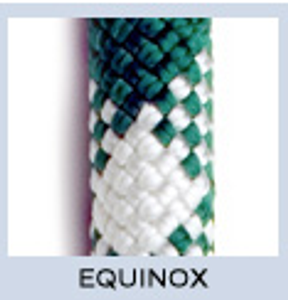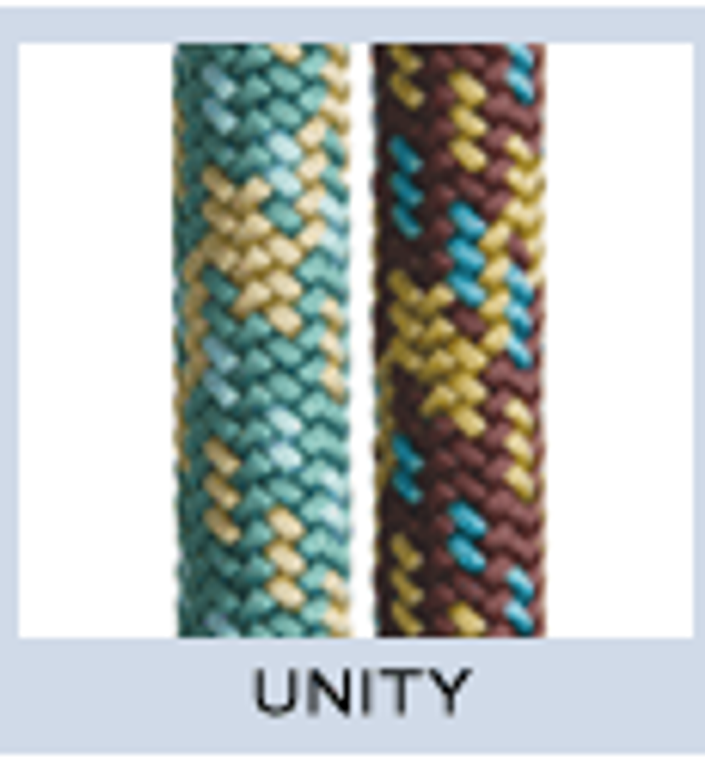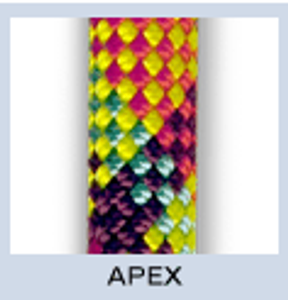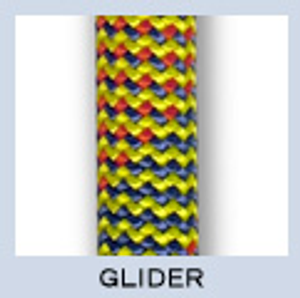
Teufelberger Unity Climbing Rope (Maxim - New England Rope)
Teufelberger (New England Ropes)For availability and pricing call 509-291-3024 or email cbknot@cbknot.com
Product Description:
The double rope technique reduces rope drag and increases fall protection over sharp edges, especially on routes with multiple traverses. This system also offers expedient full-length rappels. Unity is designed for classic climbers who clip protection alternately and for the extremely weight-conscious alpinist.
Features:
- All of our ropes have Endura dry treated cores. Select styles have a Double Dry (2x) treatment where the cover is coated with Endura Dry Treatment as well as the core for the ultimate in dry protection. These models carry the "2X Dry" designation on our website.
Applications:
- Double Rope Technique
- Glacier Travel
- Ice Climbing
| Size | Falls Held | Weight | Impact Force (kN) | Sheath Slippage (mm) | Static Elongation % | Dynamic Elongation % | Classification | Lengths | Colors | Endura Dry | |
|---|---|---|---|---|---|---|---|---|---|---|---|
| lbs/100' | g/m | ||||||||||
| 9.0 | 12 | 3.4 | 50.6 | 6.3 | 0 | 7.0 | 29 | Half | 30M, 50M, 60M, 70M, 200M | Blue, Yellow | 2X DRY |
| 8.0 | 8 | 3.2 | 47.6 | 6 | 0 | 9.6 | 29 | Half | 30M, 50M, 60M, 70M, 200M | Ocean, Fire | STD-DRY |
| 8.0 | 8 | 3.2 | 47.6 | 6 | 0 | 9.6 | 29 | Half | 30M, 50M, 60M, 70M, 200M | Teal, Burgundy | 2X DRY |
Sunlight/UV:
Very little degradation from sunlight. Can be used outside over long term if inspected regularly.
Chemicals:
Nylon will degrade with strong oxidizing agents, mineral acids, and 90% formic acid. May discolor when exposed to high levels of carbon dioxide.
Heat:
Nylon melts at 460°F with progressive strength loss above 300°F.
Dielectrics:
Good resistance to the passage of electrical current. However, dirt, surface contaminants, water entrapment, and the like can significantly affect dielectric properties. Extreme caution should be exercised any time a rope is in the proximity of live circuits.
Sheaves:
N/A
Working Loads:
No blanket safe working load (SWL) recommendations can be made for any line because SWL's must be calculated based on application, conditions of use, and potential danger to personnel among other considerations. It is recommended that the end user establish working loads and safety factors based on best practices established by the end user's industry; by professional judgment and personal experience; and after thorough assessment of all risks. The SWL is a guideline for the use of a rope in good condition for non-critical applications and should be reduced where life, limb, or valuable property is involved, or in cases of exceptional service such as shock loading, sustained loading, severe vibration, etc. The Cordage Institute specifies that the SWL of a rope shall be determined by dividing the Minimum Tensile Strength of the rope by a safety factor. The safety factor ranges from 5 to 12 for non-critical uses and is typically set at 15 for life lines.
Splicing Instructions:
Not Spliceable








